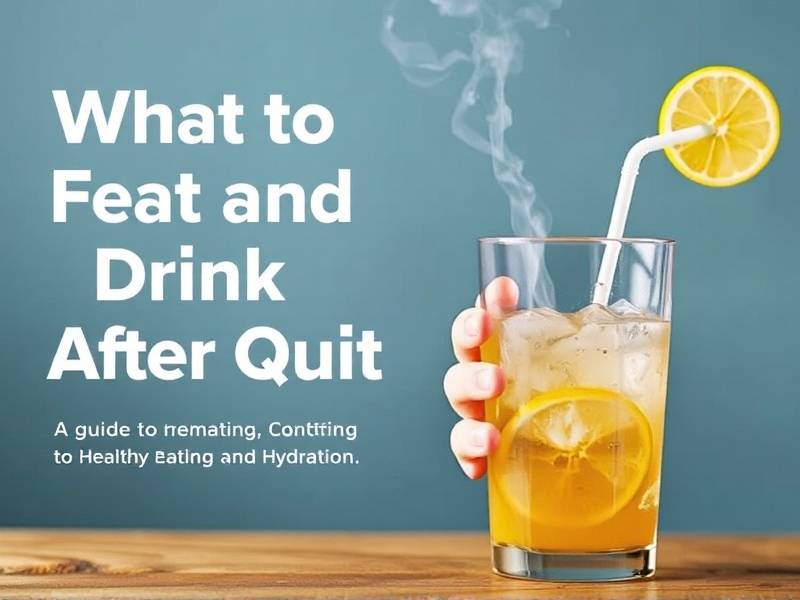What to Eat and Drink After You Quit Smoking: A Guide to Healthy Eating and Hydration
What to Eat and Drink After You Quit Smoking: A Guide to Healthy Eating and Hydration
Introduction: Quitting smoking is a significant step towards a healthier life, but it can also bring challenges in maintaining a balanced diet and staying hydrated. This guide will help you navigate the transition by providing insights into what to eat and drink after quitting smoking, promoting overall well-being.
-
Importance of Nutrition After Quitting Smoking When you quit smoking, your body starts to heal from the harmful effects of tobacco. Proper nutrition plays a crucial role in supporting this healing process. A balanced diet rich in essential nutrients can boost your immune system, improve energy levels, and aid in weight management.

-
Foods to Incorporate into Your Diet a) Fruits and Vegetables: Incorporate a variety of colorful fruits and vegetables into your meals. They are packed with essential vitamins, minerals, antioxidants, and fiber that promote overall health. Aim for at least 5 portions per day.
b) Whole Grains: Whole grains such as brown rice, quinoa, oats, and whole-grain bread provide sustained energy release and are rich in fiber. Replace refined grains with whole grains to improve digestion and reduce cravings.
c) Lean Proteins: Protein is vital for muscle repair and growth. Include lean protein sources such as chicken breast, fish, tofu, beans, lentils, and eggs in your diet.
d) Healthy Fats: Healthy fats found in avocados, nuts, seeds, olive oil, and fatty fish like salmon are beneficial for heart health. They also help maintain healthy skin elasticity.
- Hydration is Key Staying hydrated is essential when quitting smoking as it helps flush out toxins from the body. Here are some tips for maintaining adequate hydration:
a) Drink plenty of water throughout the day. b) Include fruits high in water content like cucumbers or watermelon. c) Try herbal teas or infused water with slices of lemon or cucumber for added flavor.
- Avoiding Unhealthy Choices While making positive changes to your diet is crucial after quitting smoking, it's equally important to avoid certain foods that may hinder your progress:
a) Limit processed foods high in sodium and sugar. b) Avoid excessive alcohol consumption as it can dehydrate the body. c) Reduce caffeine intake gradually to avoid withdrawal symptoms.
- Conclusion Quitting smoking opens doors to a healthier lifestyle. By incorporating nutritious foods into your diet and staying hydrated, you can support your body's healing process while enhancing overall well-being. Remember that consistency is key—make small changes gradually to create lasting habits for a healthier future.
Note: This article aims to provide general information on healthy eating habits after quitting smoking. It is always recommended to consult healthcare professionals or registered dietitians for personalized advice tailored to individual needs.

